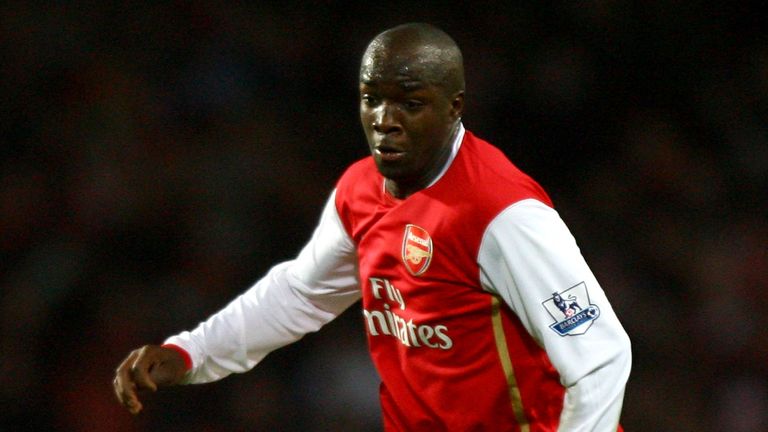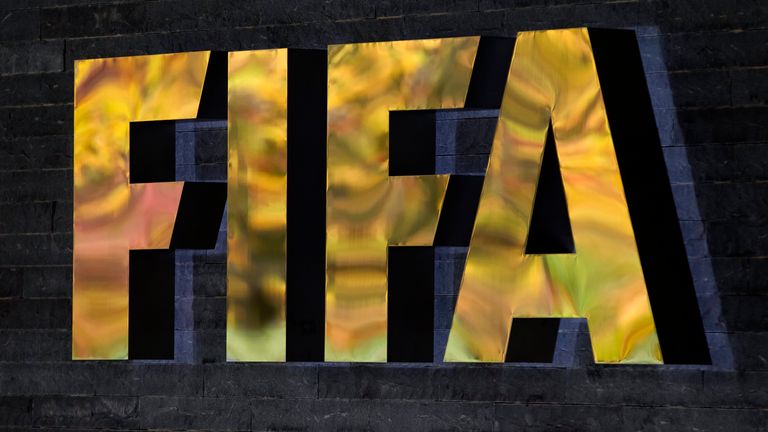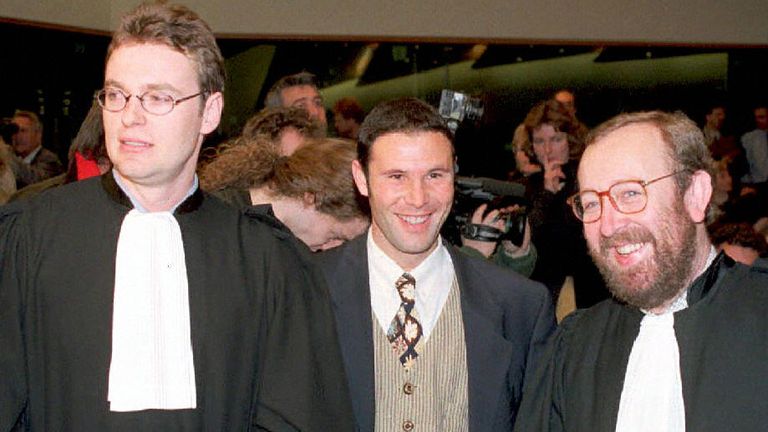 Champions League
Champions League

 Conference League
Conference League

 Premier League
Premier League

Published on Oct, 04 2024

A court decision on FIFA's transfer rules will "change the landscape of professional football", world players' union FIFPRO has said.
The European Court of Justice has found some of the rules imposed by the global governing body are contrary to EU law in that they restrict freedom of movement and are anti-competitive, following a challenge by former Arsenal, Chelsea and Portsmouth midfielder Lassana Diarra.
FIFA has already played down the significance of the ruling, saying it only puts in question the wording of two paragraphs within two articles of the overall rules governing player registrations and transfers.
However, FIFPRO believes the decision will have a profound effect.
"The European Court of Justice has ruled that a central part of the FIFA transfer system, in place since 2001, constitutes a restriction of competition by object and a violation of the free movement of workers," the players' body said in a statement posted on its official X account."The ECJ has just handed down a major ruling on the regulation of the labour market in football....which will change the landscape of professional football."
Diarra sued FIFA for damages in the Belgian courts, citing two of its rules for the collapse of a move to Belgian club Charleroi after the termination of his contract with Russian club Lokomotiv Moscow in 2014.
The first rule, Article 17.2 of FIFA's Regulations on the Status and Transfer of Players (RSTP), states a new club will be jointly liable for compensation, alongside the player, to be paid to the old club where the player has terminated contract without just cause.
The second allows the national association of the player's former club to withhold an international transfer certificate (ITC) where there is a contract dispute.
FIFA sources had questioned the significance of the ITC rule prior to Friday's judgement, pointing out that in all cases where a club wishing to sign a player involved in a dispute referred the matter to FIFA, registration with the new club was permitted.
The decision had been billed by some in the lead-up to Friday as the most significant since the 1995 Bosman ruling, which effectively gave out-of-contract players complete freedom at the end of their contracts.

Jean-Louis Dupont worked on that case and represented Diarra in this one, and his firm described Friday's ruling as a "total victory" for Diarra.
The Dupont-Hissel firm statement said the decision would pave the way for a modernisation of governance in the transfer market, "in particular the use of collective bargaining between employees and employers" as are more common in American sports.
The ECJ ruling, which is set to be published in full later on Friday, will now be handed back to the Belgian appeal court which made the referral for a final decision on the specifics in the Diarra case.
A press release from the ECJ issued on Friday morning said: "The rules in question are such as to impede the free movement of professional footballers wishing to develop their activity by going to work for a new club."
The release went on to say the court found that while some restrictions on movement may be justified to regulate competition between clubs and to ensure contractual stability in playing squads, it felt the rules in question went "beyond what is necessary to pursue that objective".

FIFA said: "FIFA is satisfied that the legality of key principles of the transfer system have been reconfirmed in [Friday's] ruling.
"The ruling only puts in question two paragraphs of two articles of the FIFA Regulations on the Status and Transfer of Players, which the national court is now invited to consider.
"FIFA will analyse the decision in co-ordination with other stakeholders before commenting further."

Maheta Molango, the chief executive of English players' union the Professional Footballers' Association, said the ruling could have "far-reaching ramifications" for football.
"It's a complicated story. The finding that FIFA's transfer rules break the EU's laws on free movement for workers across the EU and also EU's competition laws.
"It could be very significant and what's interesting is the lawyer that Lassana Diarra used in Belgium, Jean-Louis Dupont, is the lawyer who was involved in the Bosman case back in 1995, and some of our younger audience might not know that the Bosman case was very, very important.
"It was a landmark ruling, because before that ruling, players, even when their contracts had run out, their clubs could still demand a transfer fee for them. So, in 1995, this landmark case established that players at the end of their contracts could move as free agents, so for instance Kylian Mbappe last summer was able to move as a free agent to Real Madrid because of that Bosman ruling in 1995.

"Now the lawyer involved in that ruling, Jean-Louis Dupont, involved in this one as well, the question is could this be as big a deal as the Bosman ruling in 1995. Now it depends on who you speak to. FIFA is saying at the moment look let's keep things in proportion, this just has to do with two of our rules, which may have to change and those two rules are [firstly] if a player terminates his contract with a club without just cause and compensation has to be paid, then the new club would be jointly responsible for paying that compensation. It looks like that rule will have to be changed.
"And also, the second rule that I think will have to be changed which is about releasing international transfer certificates to players. So, it remains to be seen what a big deal this is. Obviously for Lassana Diarra it is a very big deal, and players who have been in a position that he's been in, it could be a very, very big deal because they could sue their former clubs for compensation now.
"The big picture is players are going to get a little bit more power, players and agents are going to get a little bit more power at the expense of clubs, and perhaps FIFA, governing bodies and leagues."
Editors Top Picks







